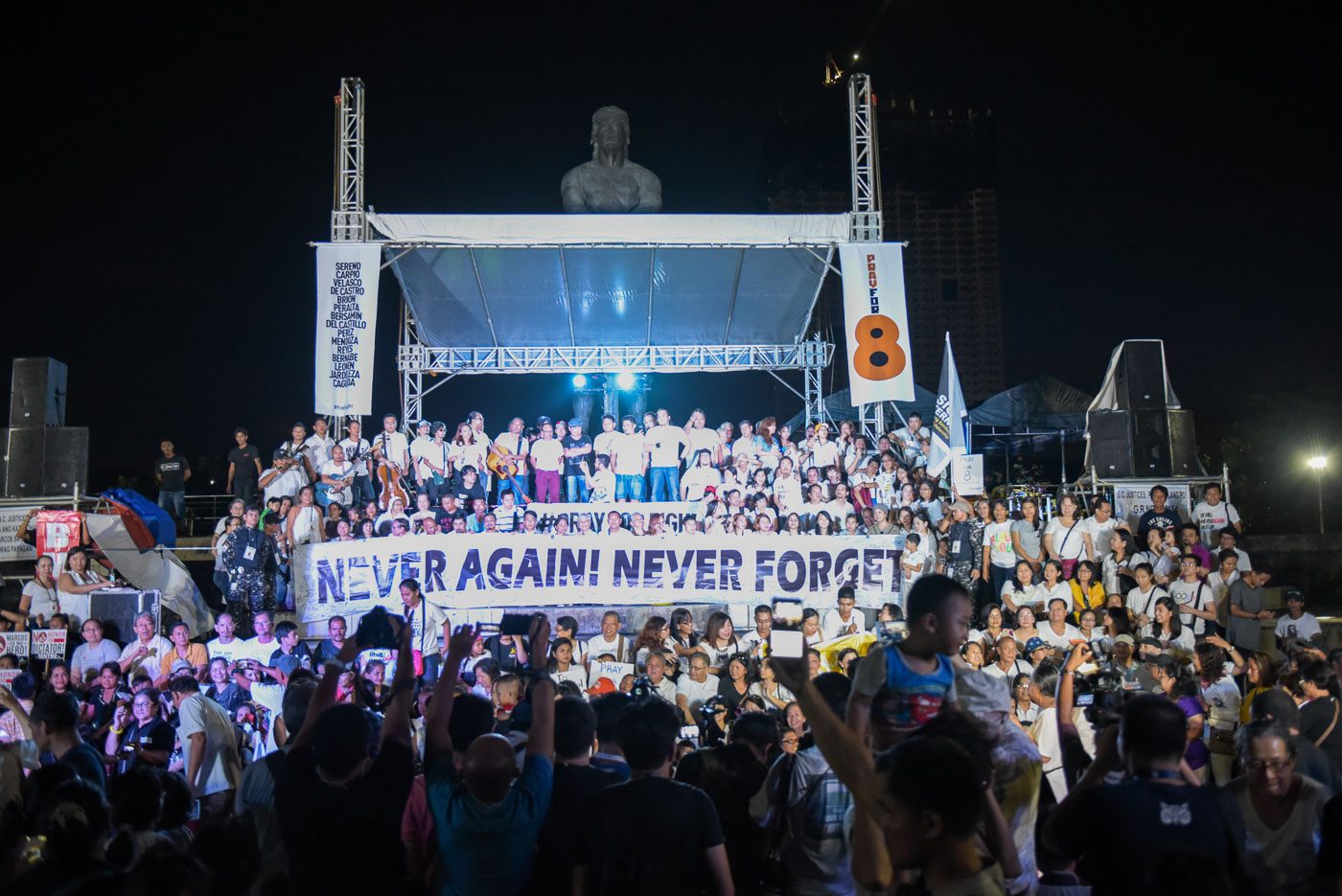SUMMARY
This is AI generated summarization, which may have errors. For context, always refer to the full article.
![[Newspoint] Dead but unburied](https://www.rappler.com/tachyon/r3-assets/612F469A6EA84F6BAE882D2B94A4B421/img/D50E797189D44466921883A2E35102A0/vergel-santos-headshot-150px.jpg)
The following piece has been exhumed from the June 12, 1998 issue of BusinessWorld; it is also in the writer’s collection of essays Worse than free (Anvil, 2005). It appears here untouched but for a few corrected literals and bracketed additions for amplification. The exhumation was inspired by the hero’s burial for Ferdinand Marcos.
It seems that Marcos will get a better deal than The Manila Chronicle.
Despite his plundering past, he may yet get his widow’s brazen wish for him to lie among heroes. After all, no less than the incoming president himself [Joseph Estrada] has offered to be his undertaker.
The Chronicle, on the other hand, has no prospects of even a decent burial, in spite if its more illustrious record of public service. It won as many awards as the next newspaper, if not more, and was in fact disqualified for a prestigious one after winning it four straight times [as Newspaper of the Year]. And even if you say that its motives were less than patriotic, it fought Marcos.
Marcos and the Chronicle are comparable not only for their lopsided luck in death; indeed, they shared each other’s luck in life. He and the paper’s original owners were one-time political partners. They used their president-making powers, most blatantly through their paper, to get him elected in 1965, and, no doubt, got presidential favors in return.
A falling-out toward the end of the sixties bloomed into an open and bitter fight. Marcos prevailed, declared martial law, closed the paper, jailed its editor and publisher, impoverished its owners, and caused, they say, the heartbreak that killed its founder, Eugenio Lopez Sr. (Actually, Marcos closed all except two papers – the old-timer Bulletin and the newcomer Express.)
When the Chronicle returned in 1986, after Marcos had been bounced off into exile in Hawaii by a popular rising, it found itself struggling in a younger and crowded market, little remembered and, for all its conceded quality, hardly profitable. All the same, it struggled on.
On the seventh year, the majority, led by Eugenio Lopez Jr. [the son who had gone to Marcos’s prison], sold to Antonio Cojuangco Jr. and Robert Coyuito. Coyuito ran the already floundering paper, taking what residual glamor and power he thought it still gave, and eventually foundered it. When the unionists struck at the beginning of the year, over unpaid salaries and entitlements, they struck an already hopelessly dead paper – it had run up debts amounting to more than P100 million, with no redeemable assets.

Much earlier, Marcos had died scandalously wealthy, with billions of dollars to his Swiss number, if not exactly to his name. Back now in his native Batac town, in Ilocos Norte, awaiting his transfer to the heroes’ grounds in Manila, he lies preserved in a glass case, made up to look good (so good he looks more like a mannequin than a corpse) and made comfortable in an air-conditioned, light-studded mausoleum at the further expense of the very nation he had ruled as a dictator for 14 years and mortgaged to international creditors for generations to come. His family, friends, and associates have managed meanwhile to worm their way back into power. Joseph Estrada does not count himself among them – he is just an undertaker [a position he would be unable to discharge, at any rate – he would be kicked out of the presidency himself for plunder before midterm; Rodrigo Duterte would fulfill it 18 years later.]
But for the Chronicle and its employees, who have been left in the lurch all these months by its death, no one seems to care. The mere matter of burial has been complicated by differences between the owners. An executive who speaks for Cojuangco says that, while he is ready to do his share, Coyuito does not appear ready to do his. In fact, he does not appear at all, according to the strike leaders who have been trying to see him. My own efforts, made for the purpose of his column, have been similarly unrewarded.
Sharing in this case is reckoned of course in terms of money one must part with, and, surely, leaving the Chronicle unburied should suit the owners fine; it means the issue hangs, the debts go unpaid, and the employees remain on the street. Even if the issue were forced, the prospects would not be much brighter: court cases cost and drag.
What do people who don’t have jobs afford – people who, furthermore, belong in an industry overcrowded and approaching redundancy?
Certainly they can’t afford to owe or be owed to. Other than plead and wait, even for something that is due them, what can they really do?
[Meanwhile, the Chronicle stays dead but unburied.] – Rappler.com
Add a comment
How does this make you feel?
There are no comments yet. Add your comment to start the conversation.